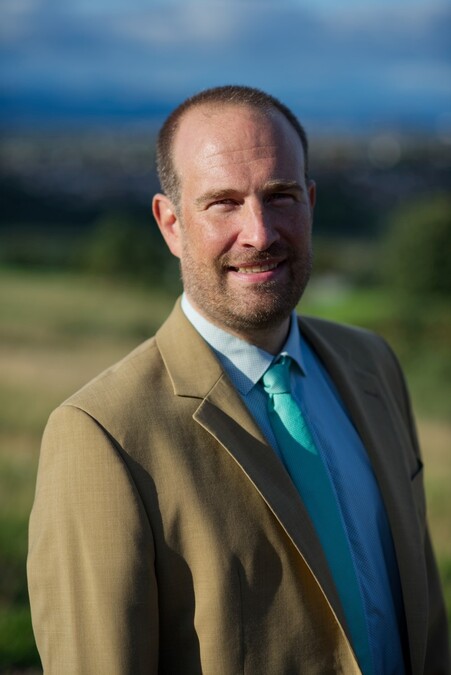A subsurface flow revolution: geoenergy pioneer

Why it matters
The intricate complexities of the Earth's subsurface have long been a subject of fascination for scientists and engineers alike. At Heriot-Watt University, Professor Florian Doster, a leading expert in subsurface flow phenomena, is at the forefront of this research, leveraging his extensive background in physics to develop innovative models that are critical to the sustainable management of our planet's resources.
Florian's research is centred on modelling subsurface flow phenomena, a critical area of study that impacts various applications relevant to the United Nations Sustainable Development Goals. From groundwater flow to geothermal energy production and geological CO2 storage, his work underpins efforts to assess the feasibility, safety, and economic viability of these applications before any decisions are made.
Subsurface flow is notoriously complex due to the vast range of length and timescales involved and the interplay of different physical phenomena. Florian's research aims to create models that, in his words, are "as simple as possible but not simpler." Drawing from his interdisciplinary background, he collaborates with geologists to refine existing models, making them more robust while maintaining computational efficiency. His work primarily focuses on geological CO2 storage but extends to geothermal energy, hydrogen storage, and oil and gas recovery.
Solving real-world issues
Florian's research has made significant contributions to the field of subsurface energy operations, particularly in CO2 storage and geothermal energy. His models are pivotal in predicting the presence of resources and managing them optimally, even in the face of sparse and uncertain geological data. These models are available through the open-source MATLAB reservoir simulation toolbox, widely used by the global research community.
In recognition of his contributions, Doster has received numerous accolades, including the Best Instructor Award from the European Association of Geoscientists and Engineers (EAGE) in 2022 and the prestigious InterPore Rosette for his work with the International Society for Porous Media. His innovative work was also highlighted at the SPE Reservoir Simulation Symposium in 2015. Additionally, Doster has co-chaired major conferences, including the 2023 InterPore Annual Conference and the Storage Efficiency Symposium hosted by the Royal Geological Society.
Future directions
Looking ahead, Florian is keenly exploring the potential of artificial intelligence (AI) and machine learning in subsurface flow modelling. He is actively involved in projects like ECO-AI, which aims to enhance Carbon Capture and Storage (CCS) technology through AI. However, he remains cautious, believing that while AI will bring significant advancements, traditional physical models will still be crucial for understanding and creativity in the field.
A particularly exciting development is the recent grant for the "Multiscale Pressure-Stress Impacts on fault integrity for multi-site regional CO2 storage hubs" project. This initiative will develop modelling capabilities and regulatory frameworks essential for managing pressure and associated risks in shared CO2 storage sites.
Leading expertise
Professor Florian Doster's journey in the world of physics began at Heidelberg University in Germany, where he completed his degree in 2006. He then pursued a PhD at the University of Stuttgart, where he was part of the International Doctoral Training Centre focused on "Non-linearities and Upscaling in Porous Media." Lead by Professor Rainer Helmig and Professor Majid Hassanizadeh. After his PhD, he collaborated with prominent scholars like Professor Michael A Celia at Princeton University and Professor Jan M Nordbotten at the University of Bergen. This experience broadened his understanding of geological CO2 storage, a key focus area in his current research.
Since joining Heriot-Watt University in 2013, initially through the Global Platform for Research Leaders program, he has ascended to the rank of Full Professor. His teaching portfolio includes fluid mechanics and reservoir simulation, and he has held significant roles such as Program Director of the MSc in Subsurface Energy Systems and co-lead of the Geoenergy Theme in iNetZ+, the global research institute for a net-zero [HS2] future.
As of 2023, Florian also serves as the Director of Postgraduate Research in the School of Energy, Geoscience, Infrastructure and Society.